Share
Working at ESO
Are you interested in working in areas of frontline technology and in a stimulating international environment? Do you feel your profile matches our requirements? Learn more about our current vacancies and apply online. Read more..
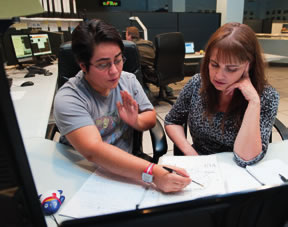
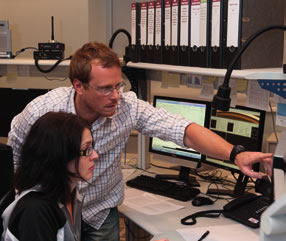

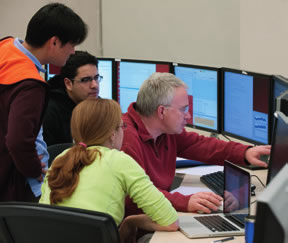
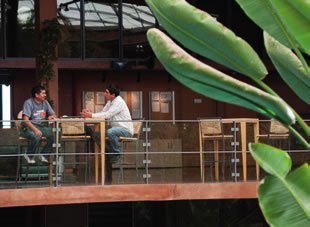

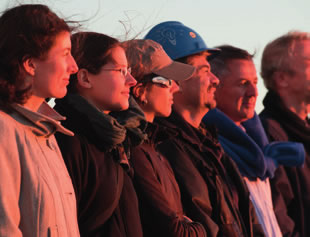
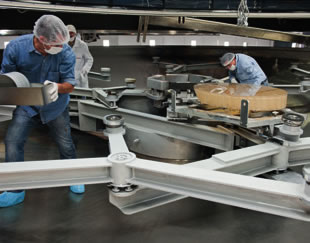
The European Organisation for Astronomical Research in the Southern Hemisphere (ESO) is the foremost intergovernmental astronomy organisation in Europe and the world's most productive ground-based astronomical observatory. ESO carries out an ambitious programme focused on the design, construction and operation of powerful ground-based observing facilities enabling astronomers to make important scientific discoveries.
ESO operates three unique world-class observing sites in northern Chile: La Silla, Paranal and Chajnantor (home to ALMA), and the ESO Headquarters are located in Garching, near Munich, Germany.
At Paranal, ESO operates the Very Large Telescope, the world's most advanced visible-light astronomical observatory, and will host and operate the southern array of the Cherenkov Telescope Array, the world's largest and most sensitive high energy gamma-ray observatory. ESO is a major partner in ALMA. On Cerro Armazones, ESO is building the 39-metre Extremely Large Telescope (ELT), which will become "the world's biggest eye on the sky" and whose operations will be fully integrated into the Paranal Observatory.
For its Day and Night Operations Support (DNOS) group at La Silla Observatory, ESO is advertising two local staff members positions of:
The La Silla Observatory is part of the La Silla Paranal Observatory and the main telescopes are 3.6m and NTT with their associated instruments. Additionally, support is given to remote-controlled telescopes as well as hosted telescopes. The Day and Night Operations Support (DNOS) is a group within the La Silla Observatory structure in charge of the telescopes and instruments operations. The main activities are the preparation during the daytime of the observations regarding telescope and instrument start-ups, instrument setups, and calibrations. They are the front line to figure out any possible failures occurring during the night observations and report it on internal systems. The Day and Night Operations Support group works with visiting astronomers and remote observers, performing and analyzing the observations.
Main Duties and Responsibilities:
The successful candidate will mainly operate the two telescopes currently supported at the La Silla Observatory together with the attached scientific instruments.
S/He will perform the following duties:
- Operate telescopes and their astronomical instruments at maximum efficiency, while maintaining the security of people and equipment under responsibilities. Furthermore, acting as a weather officer duty is monitoring weather conditions to protect telescopes in case of bad weather conditions.
- Perform front-line troubleshooting of telescopes and instruments. Assist in diagnosing problems so the TIMES group can resolve them efficiently. In addition, reporting and tracking problems on the ITS system.
- To prepare telescopes and instruments to perform the night observations, including start-ups and instrument setups.
- Additional duties and responsibilities can be added according to qualifications, motivations, and the organization's goals. Such as the implementation of operation procedures, documentation on the internal wiki, contribution to the monitoring and characterization of the instrumentation, and so on.
Reports to:
The successful candidate reports to the Head of Day and Night Operations Support at La Silla Observatory.
Key Competences and Experience:
We are looking for highly motivated individuals, with an interest in scientific work. The successful candidate must have good interpersonal skills and the ability to work in teams. The candidate should be capable of developing positive working relationships at all levels and must demonstrate the ability to approach decision-making objectively. This includes securing relevant information, identifying key issues and relationships from base of information and discerning cause-and-effect relationships.
The candidate must be able to communicate clearly and expressively, both orally and in writing. Operational knowledge of LINUX/UNIX is pre-requisite for their work competences.
Several years of experience operating high technology systems, and/or working in a position requiring real-time risk assessment and decision-making are highly desirable.
Qualifications:
The successful candidate will possess a university degree in software or electronics engineering, or an equivalent advanced technical degree in a scientific or technical discipline. A formal background in atmospheric physics would be considered an advantage.
Language Skills:
ESO is an international organization where the official language is English. The position requires proficiency in oral and written communication in English.
Remuneration and Contract:
We offer an attractive remuneration package including a competitive salary and educational benefits, as well as financial help in relocating the candidate's family, where applicable. ESO aims to support its members of personnel in maintaining a good work-life balance (https://www.eso.org/public/jobs/conditions/intstaff/#work-life-balance) between their professional and private life.
The initial contract is for a two-year term subject to medical clearance and successful completion of the probation period with a possibility of indefinite extension following the two years. The title or grade may be subject to change according to qualification and the number of years of experience.
For further information, please visit https://www.eso.org/public/archives/static/jobs/conditions/brochure-lsm-updated-jan2020.pdf
Duty Station:
The La Silla Observatory is located 600 kilometers north of Santiago de Chile, in the southern part of the Atacama Desert and at an altitude of 2,400 meters. The shifts will be 8 days on-site followed by 6 days off-duty (8x6). Accommodation is provided on-site.
Career Path:
IV
Application:
If you are interested in working in areas of frontline science and technology and in a stimulating international environment, please visit http://www.eso.org for further details.
Applicants are invited to apply online at https://recruitment.eso.org/. Your application should be in English and include your curriculum vitae (CV) and a letter of motivation. All interviews will be conducted in English.
Closing date for applications is 3 May 2024.
Interviews are expected to start soon after this date.
Nationality:
No nationality is in principle excluded from employment at ESO, however, non-Chilean applicants to this role must reside in Chile and/or have a pertinent working permit, according to Chilean regulations at the time of their application. ESO is committed to equal opportunities. The post is equally open to suitably qualified candidates irrespective of gender, age, disability, sexual orientation, ethnicity, or religion.
ESO Values:
An important element in any successful employment relationship is harmony in values between an organisation and its people.
The ESO values are:
ESO strives for excellence through innovation.
ESO provides outstanding services to its communities.
ESO fosters diversity & inclusion.
ESO believes in the key role of sustainability for its future.
Achieving the above are recognized as only possible based on personal values and attitudes that we expect from our employees: respect, integrity, accountability, commitment, collaboration, and clear & open communication. Applicants to any ESO role are asked to reflect on their affinity with these values and advised they may be asked about them if called for interview.
Diversity:
ESO has established diversity as an important value of the Organisation, is committed to providing an equal opportunities environment and is actively seeking to promote a diverse, equitable and inclusive workforce.
